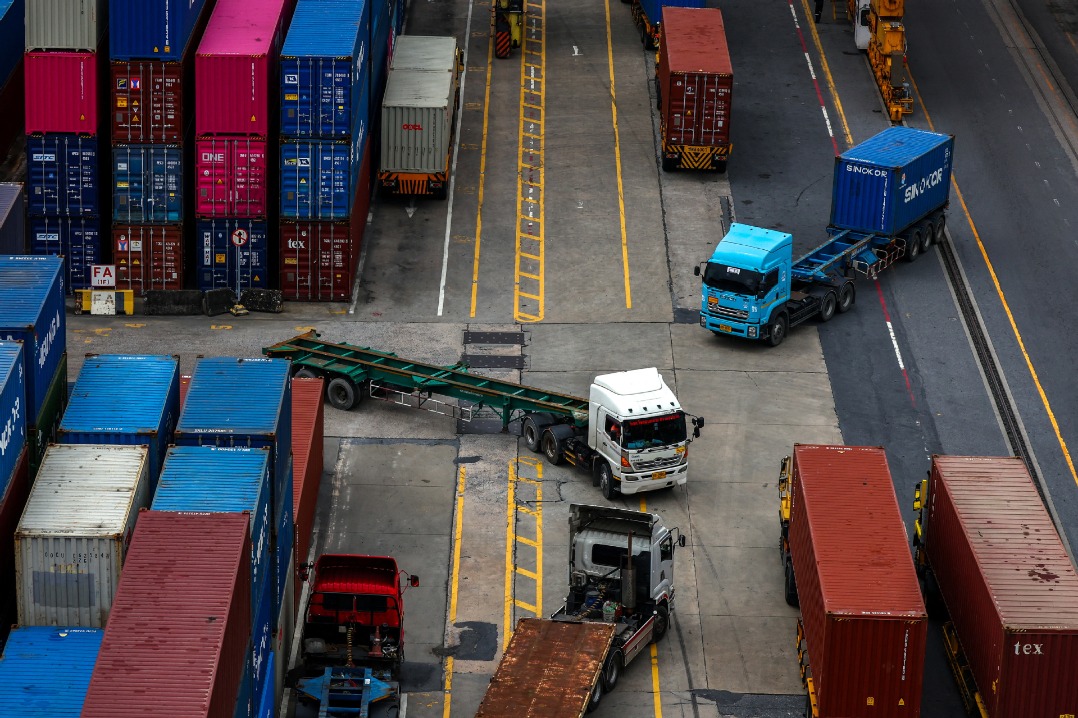Australia market unlikely to see surge in US beef

Australia's decision to ease restrictions on US beef imports — by lifting some biosecurity controls — is unlikely to trigger a big surge in shipments from the United States, analysts say, noting that US exporters will find it difficult to compete with Australian producers in the continent's market.
The change follows the completion of a government biosecurity review. Australia's minister for agriculture, fisheries and forestry, Julie Collins, told reporters last week that the US has been allowed to export beef to Australia since 2019.
"In 2020, they asked for the expanded access. This process now is at conclusion and has taken around five years to conclude," she said. "We are assured that the supply chain and the traceability and the safety of any food coming into Australia is safe."
The Office of the US Trade Representative hailed the decision on Friday as "a historic win for American ranchers".
In a post on social media, US President Donald Trump said the US would now "sell so much to Australia".
However, Michael Crowley, managing director of Meat and Livestock Australia, the industry's marketing and research body, said in a statement on the biosecurity review that the impact of US beef entering Australia "is expected to be minimal".
"It is unlikely there will be an adverse effect on Australian cattle producers," Crowley said.
"The potential for US beef to be imported into Australia in large volumes is minimal, given the high demand for beef in the US, the low US cattle herd, the strength of the Australian dollar, our competitive domestic supply, and most importantly Australians' strong preference for high-quality, tasty and nutritious Australian beef."
More than 99 percent of the beef sold in Australia's supermarkets, pubs and restaurants is Australian, with the country producing about three times more beef than needed domestically and about 70 percent of the production exported, he said.
Demand grows
US demand for Australian beef continues to grow, Crowley added. Last month, exports to the US rose 24 percent year-on-year, despite a 10 percent tariff introduced in April. "US consumers value the quality, taste and nutritional profile of Australian beef," he said.
Australia exported more than 134,500 metric tons of beef in June alone, a record volume that represents a 27 percent rise year-on-year, with exports to the US standing at more than 35,300 tons, according to Meat and Livestock Australia.
Ben Udy, lead economist at Oxford Economics Australia, told China Daily that Australian consumers are "unlikely to be very hungry for US beef imports even after the lifting of biosecurity restrictions".
"Australia produces the vast (portion) of the beef consumed domestically, itself. What's more, to the extent that beef is imported, it's generally very high-quality beef from Japan or New Zealand," Udy said, while noting that "the US has been increasing its purchases of Australian beef rapidly over the last few years as poor weather has limited cattle numbers in the US".
"Overall, US farmers don't have much excess capacity to start supplying beef to Australia, and even if they did Australians are unlikely to be particularly interested," he said.
alexishooi@chinadaily.com.cn

































